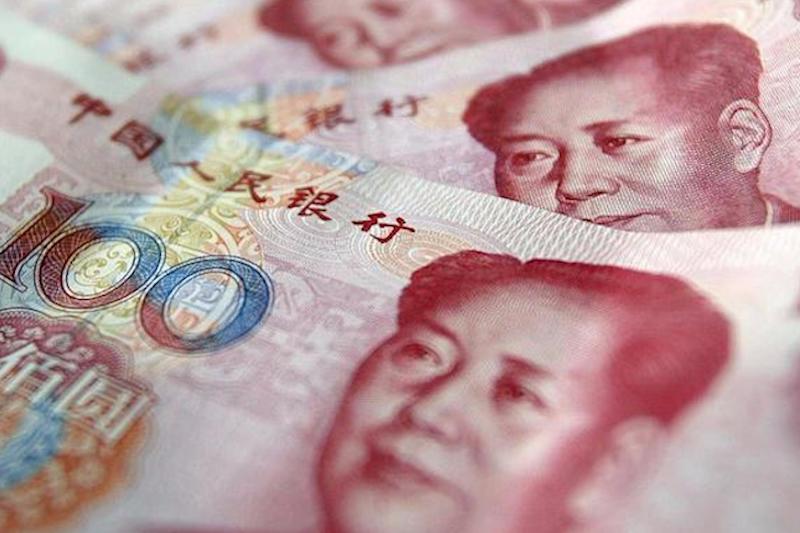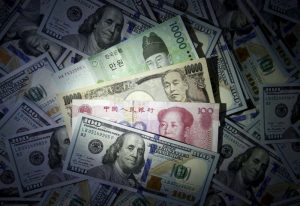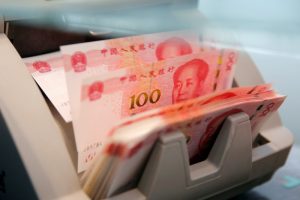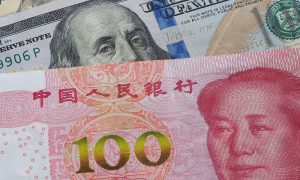China’s yuan slipped to a one-year low against a robust dollar early on Monday on the country’s worsening economic outlook and investor concern the currency may fall further.
News that strict Covid lockdowns could be imposed in parts of Beijing, as well as the financial hub of Shanghai and a dozen other cities, have amplified concern about greater disruption to supply chains and business activity.
Officials in Beijing said people living or working in Chaoyang district in the capital would have to take three Covid tests this week, while a dozen buildings were locked down because of positive test results.
These events have raised serious doubt on whether China will reach its 5.5% GDP growth target, as well as undermined support for the currency, which has suffered its worst week in seven years.
“Last Friday’s sharp CNY depreciation may mark an inflection point for further CNY depreciation, (should the) market continue to focus on the negative yield spreads of China and near-term weak economic performance,” said Li Lin, head of global markets research Asia at MUFG Bank, who cut her yuan forecast to 6.55 by the end of the second quarter from 6.45 previously.
Weakest Level Since August
The People’s Bank of China (PBOC) set the midpoint rate on Monday at 6.4909 per dollar prior to market open, the weakest level since August 2021.
In the spot market, both onshore and offshore yuan, breached the key 6.55 per dollar, touching their weakest levels since April 2021, before trading at 6.5412 and 6.5715, respectively, as of midday.
Several traders said the pace of yuan weakening slowed after some state-owned Chinese banks, which usually trade on behalf of the central bank in the foreign exchange market, offered small amounts of dollars in the onshore market at around 6.55 per dollar level.
Authorities, though, have yet to show discomfort about the rapid losses in the yuan, which has weakened by around 2.6% since last Monday.
Guan Tao, global chief economist at BOC International and a former senior official at China’s foreign exchange regulator, said the current round of yuan depreciation was driven by the offshore market rather than by guidance from the official midpoint setting.
“The recent yuan decline was not the cause but the result of foreign investors’ reduction in yuan assets … Once the market confidence is restored, foreign capital may return at any time, and the yuan will regain support,” he said.
Meanwhile, some traders said they are seeing growing demand for dollars from their corporate clients, who are betting on further declines in the Chinese currency.
The dollar’s strength – against the backdrop of aggressive US Federal Reserve tightening, the vanishing Chinese yield advantage and growing economic pressures – also has weighed on the yuan.
“Looking ahead, the next target would be the March 2021 high near 6.5795,” Win Thin, global head of currency strategy at Brown Brothers Harriman, said in a note.
“With monetary policy divergence with the Fed set to widen, we think this yuan move still has legs,” he added, noting the yield spread between the world’s two largest economies would continue to move in the dollar’s favour.
- Reuters with additional editing by Jim Pollard
ALSO READ:
China’s Yuan Falls to Six-Month Low Against US Dollar
Digital Yuan Eases Project Payments – OpenGov Asia
China Expands Digital Yuan Pilot Scheme to More Cities























